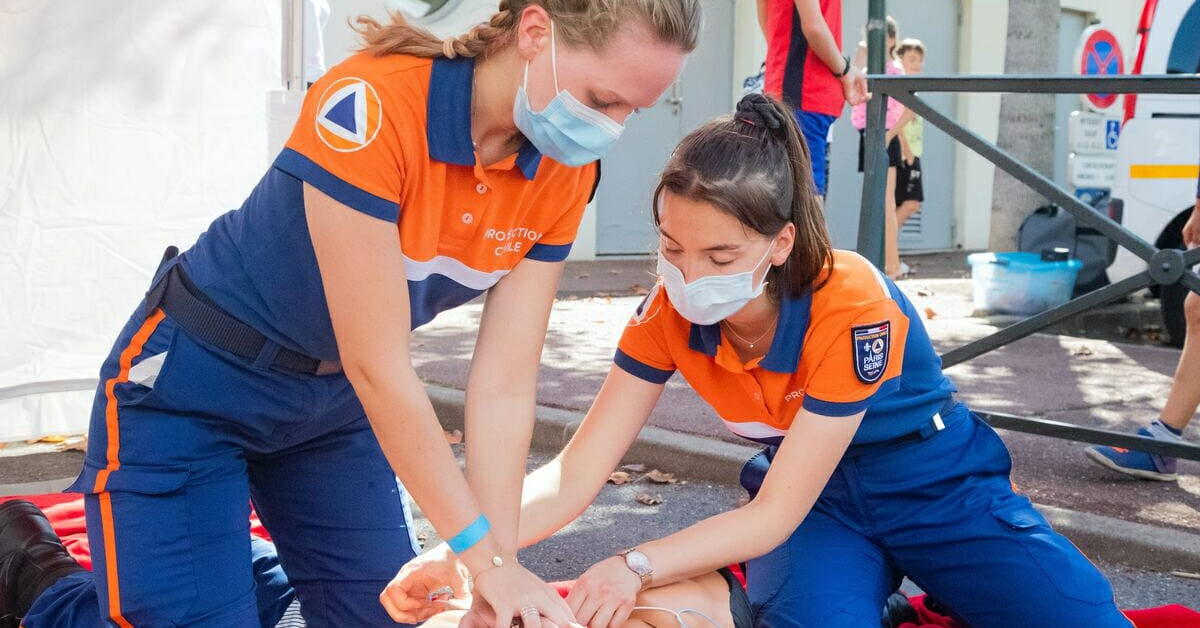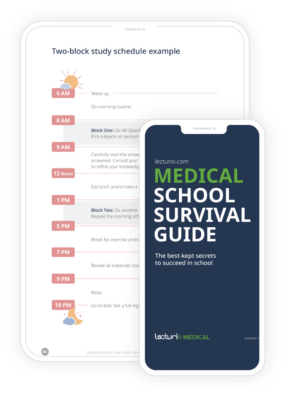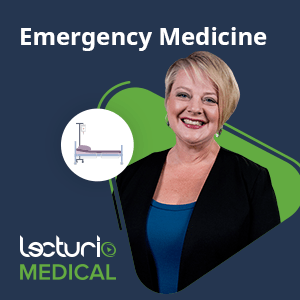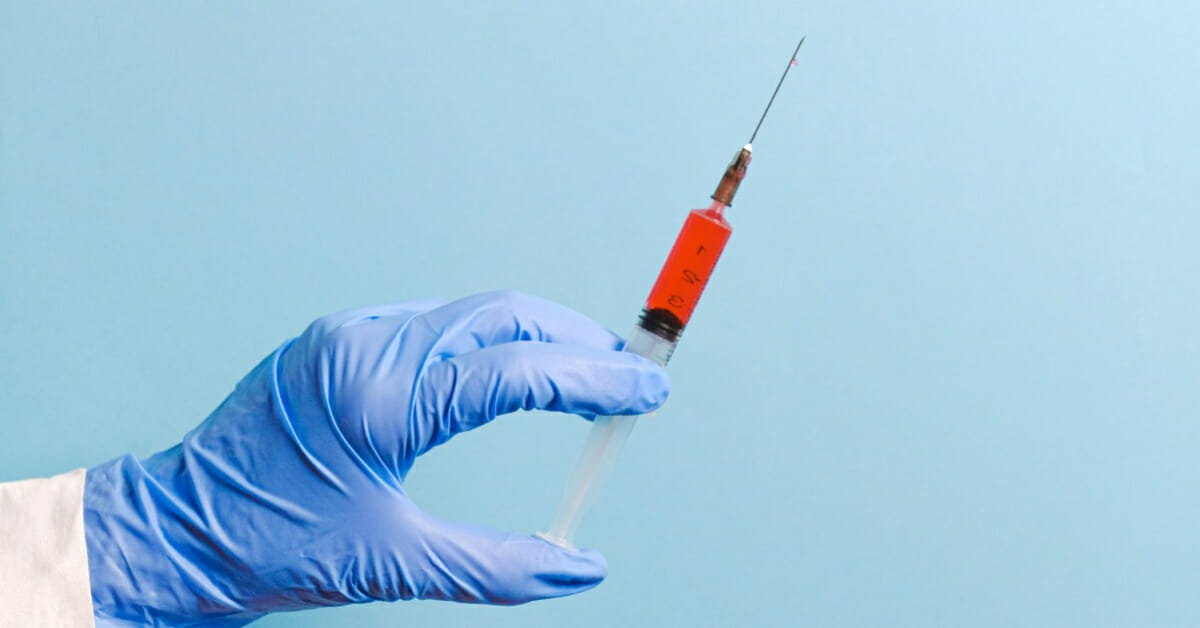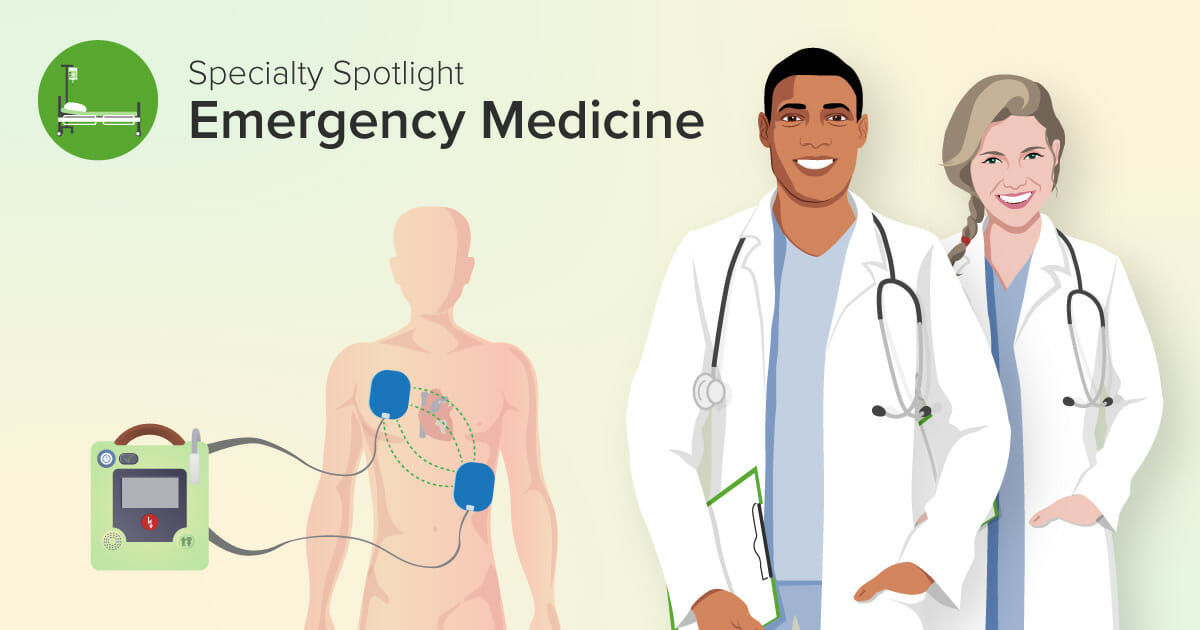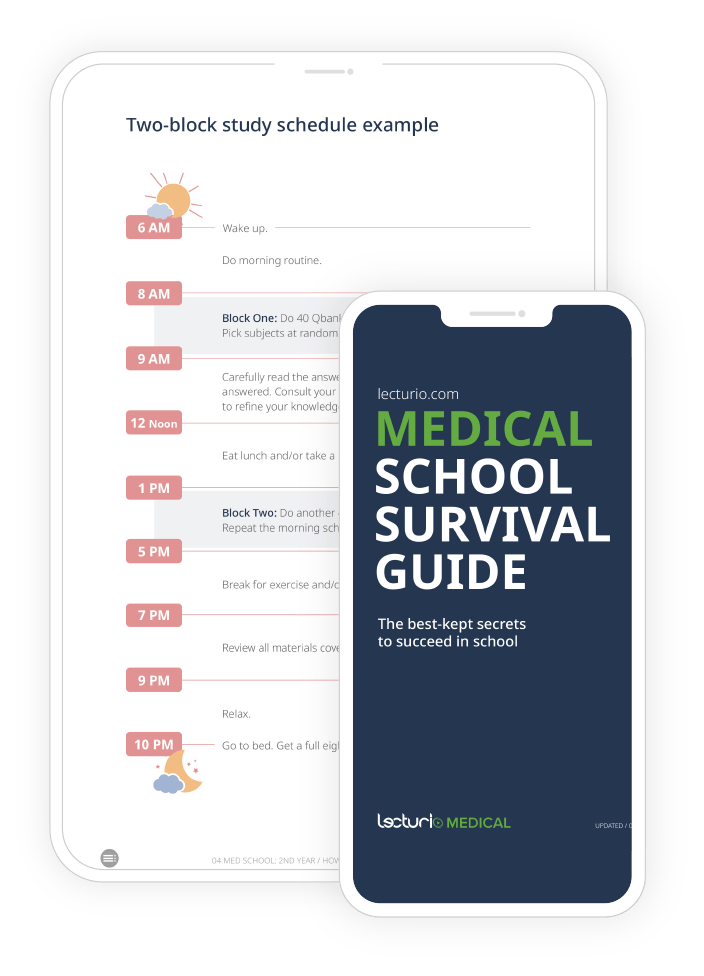We’ve all seen those scenes in medical dramas where someone falls unconscious. Typically, someone shows up, administers CPR, and the person is heroically saved. Sure, it looks cool on screen, but sometimes it’s done incorrectly. This is why it’s important that people know how to do it properly.
In reality, medical emergencies are scary and chaotic. When I responded to my first emergency outside the hospital, I felt hesitant because I wasn’t confident enough. Hesitation is the last thing a doctor should exhibit in an emergency. You need to act fast and know what you’re doing when someone’s life is on the line. Basic Life Support (BLS) training prepares you for those situations so that you can respond with competence and decisiveness.
What Is BLS? What Is a BLS Certification?
BLS is a type of care given during life-threatening emergencies. This includes cardiopulmonary resuscitation (CPR), using automated external defibrillators (AED), and relieving airway obstruction. It’s more advanced than First Aid Training and is primarily performed by professionals.
BLS certification is required for doctors, nurses, firefighters, police officers, dentists, and other health and safety professions. Certification ensures that you’re capable of responding to emergencies, which makes it a good asset when you’re searching for jobs in these careers.
Take the Course: Emergency Medicine
Cover all EM essentials with Dr. Julianna Jung and Dr. Sharon Bord, Johns Hopkins University
BLS vs CPR certification: What is the difference?
Cardiac arrests can happen to anyone, anywhere, which is why bystanders should learn CPR. Doing so increases the survival rates of people experiencing cardiac arrest. Sometimes, CPR training even includes first aid training for treating poisoning, minor injuries, and other non-emergency cases, making it useful for just about anyone. But how does this differ from Basic Life Support (BLS)?
As I mentioned earlier, Basic Life Support (BLS) is more advanced than CPR training. While BLS includes CPR in its curriculum, it also covers other emergencies. It teaches you how to operate an automated external defibrillator (AED) and how to treat airway obstructions. If you’re a healthcare or safety professional, you’ll likely need to obtain a BLS certification.
What does BLS cover?
BLS covers a variety of life-saving procedures, best practices, precautions to take, and some medical background on the procedures themselves. According to the American Heart Association, it covers:
- High quality CPR for all ages
- The AHA Chain of Survival, and the BLS components
- Early use of an AED and its importance
- Ventilations using barrier devices
- Teams in multi-rescuer resuscitation and effective team performance
- Relief of foreign-body airway obstruction for all ages
Different courses may include or exclude some parts, but the main focus is on the procedures you must do to stabilize emergency patients until help arrives.
Why Is BLS Certification Important?
Nine out of 10 people who have cardiac arrest often die within minutes outside a hospital. Patients who receive high-quality CPR have a better prognosis as 25.5% of patients survive to hospital discharge. It may seem like a “low” number, but any chance at saving someone is better than nothing. These reasons on their own should already be enough to learn at least CPR, but why BLS?
#1 You’re trained to use an AED
While an important component of CPR is high-quality chest compressions, an AED is essential in reviving the normal rhythm of the heart. It basically delivers an electric shock that kickstarts the heart back into its normal rhythm. However, not all arrhythmias are treated with an electric shock. Some must be treated with epinephrine, which is usually only available when emergency responders arrive or when they get to the hospital. As time passes, you’re less likely to have a shockable arrhythmia. Because of this, the chance of survival decreases by 7-10% every minute without shock therapy.
Patients who receive AED shocks from a publicly available device have almost 3 times higher odds of survival to hospital discharge and favorable outcomes. This is compared to patients who had to wait for emergency responders to arrive and give the shock. Knowing how to use an AED and deliver shocks before help arrives not only saves lives but also improves the quality of life of patients post-treatment. While not all locations have a nearby AED, it’s still worth knowing how to use one in case it is available.
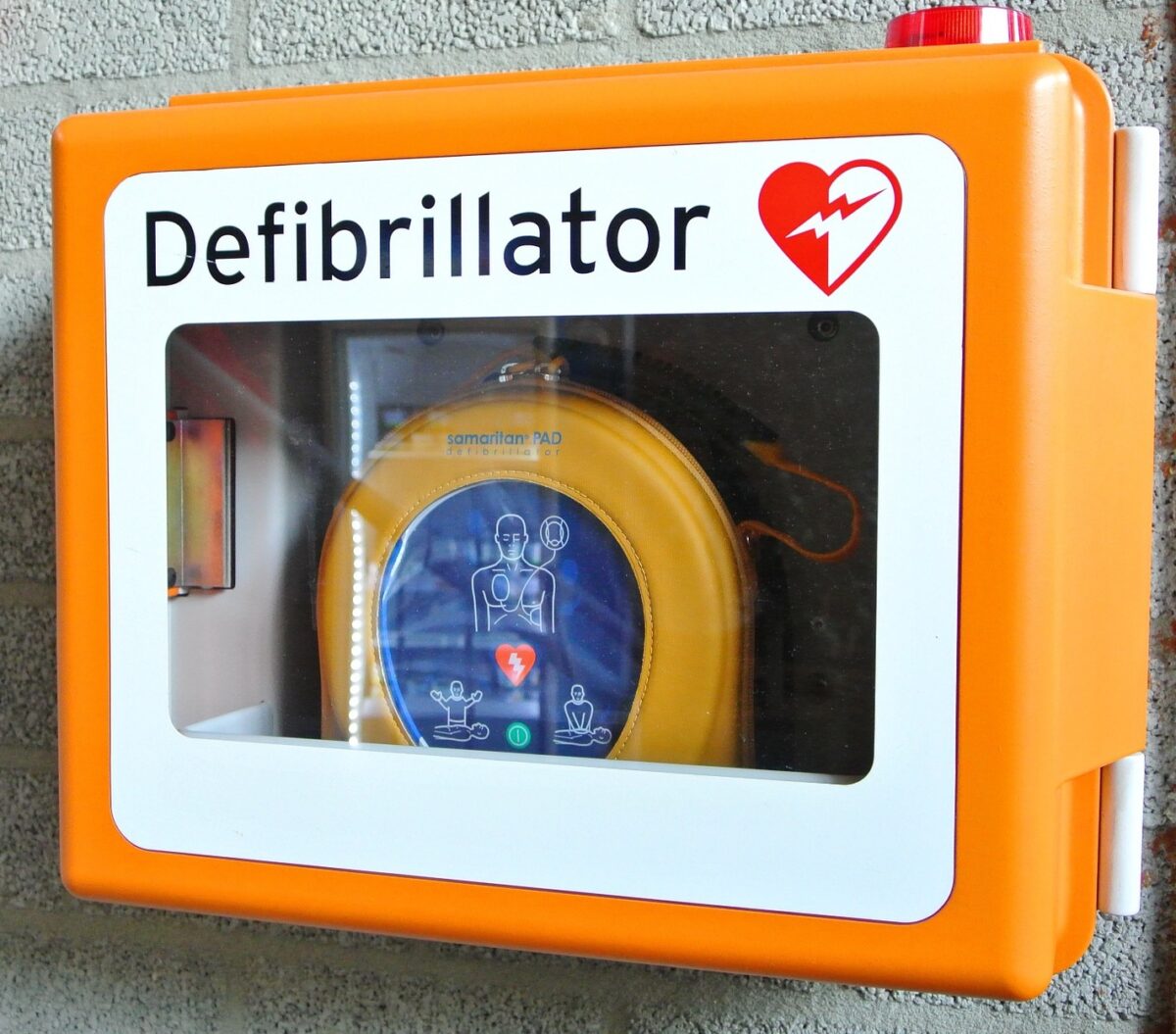
#2 It’s an advantage for your career
Having relevant certifications for any job is always a plus. For health and safety-related jobs, BLS and CPR might be required. While some employers are happy to train their employees for the necessary certifications, it’s often more cost-effective for them to hire people who already have them. So, having these certifications can set you apart from other applicants.
#3 It builds confidence
One of the barriers to performing CPR is that people are too scared to act. They think that even if they help, they can’t do it correctly and will inadvertently harm the patient. This fear is a big factor as to why people don’t want to even learn CPR. They don’t want to be held liable if things go wrong.
However, one thing I’ve learned about BLS training is that it builds confidence in your ability to respond. They make you perform high-quality CPR again and again until you get it right. Apart from that, they also teach you about the legal aspects of performing CPR in cases of emergency. By the end of it, you should have confidence in your abilities.
#4 It builds a sense of safety for the people around you
Medical emergencies can happen anywhere. They can happen at home, at work, or even on your daily commute.
Knowing that you’re around someone who can perform BLS is a comforting thought. If you’re someone who works with at-risk patients, in remote locations, or with rescue teams, knowing you have BLS training puts people at ease. It means that there’s hope for the patients who undergo cardiac arrest. It also causes less panic during emergencies because there’s someone around who knows what to do, making it easier to help the patient.
How Do I Become BLS Certified?
To obtain BLS certification, you can attend classes offered by organizations like Red Cross, National CPR Foundation, the American Heart Association, and other BLS certification classes online. Usually, this involves reading through material and taking a test afterwards. In-person or blended learning courses are recommended for hands-on practice and proper guidance.
The class I took was under the American Heart Association. So, I was asked to read BLS manuals and diagrams online before the class started. After studying those, I took an online exam to assess my knowledge afterwards. Then, I attended a face-to-face class to run through the whole BLS algorithm with feedback devices. It provided me with hands-on experience, even if it was on dummies. It was better than practicing at home and not having anyone correct me in case I was doing something wrong.
How Do I Maintain/Renew my BLS Certification?
BLS certifications must be renewed every 2 years. You can have them renewed where you originally had your classes before, or with a new institution. This is as long as their classes follow AHA, ECC, ILCOR or similar standardized guidelines for your area or country.
Of course, you don’t have to wait 2 years to sign up for a class. Remember, the whole point of BLS training is not because you hope to use it. It’s so that you’re prepared in the unfortunate event that you must use it. So if you feel the need to refresh your knowledge on BLS procedures, you can always take a renewal class before your certification expires.
Can I Be Sued for Giving CPR?
You can get sued for anything. That’s why you’re supposed to be trained first before you perform CPR or BLS on patients. Of course, a common concern is being held legally liable despite your best intentions to help people. Good Samaritan Laws aim to limit the liability of volunteers who perform care and rescue procedures during emergency cases. However, these laws can vary between states and countries. So in general, apart from being sure the patient even needs CPR, you need to follow the standard practice for care. This can be hard to remember when you’re panicking, but that’s the point of being prepared in the first place. Be sure to read up on the laws of your state on how the Good Samaritan laws apply to you.
Of course, the alternative to not acting is the patient dying, so I’ve always been taught that acting is better than doing nothing. But don’t forget that you can’t act recklessly because that will most likely harm you or the patient.
Always take a breath and try not to panic.
Can I be held liable for not responding to a medical emergency?
This is a common barrier to learning CPR or BLS. Many people don’t want to be held liable for doing nothing, despite being trained to respond. So, if you’re a bystander and you see someone collapse on the ground, in need of CPR, you’re allowed to not do anything. This can happen if the environment is too dangerous, there’s a risk of contracting a contagious disease (i.e., COVID), or you’re simply not confident in your ability to save them. Unless it’s your job to save them, you have no duty to help them. Therefore, you’re not legally responsible for any injury that happens to them.
However, as someone trained in CPR or BLS, if you choose to help them, you take on the duty to provide the standard of care expected of you.
After which, you can be held liable for negligence if you do it wrong. So, that’s why you have to remain updated on the proper ways to do BLS, and why renewal happens every 2 years. Refresher courses can increase your confidence and decrease your chances of making mistakes that may harm you or the patients.
It Sounds Like a Lot of Responsibility, Is Getting a BLS Certification Worth It?
As I wrap up this article, I know it might seem like a lot of trouble to get a BLS certification. It costs money, you have to travel to attend face-to-face classes, you’re responsible for the lives of others, and you have to renew it every 2 years. But I assure you that the pros outweigh the cons when it comes to learning BLS. If you live or work with people who are at high risk for cardiovascular emergencies, I would recommend you become BLS certified.
It can be scary to take responsibility for another life. But it’s hard to weigh those fears against an actual life on the line.
At least if you’re trained well, you’ll be confident enough to save someone. Honestly, more people should at least be trained in CPR. If that were the case, we could reduce a lot of deaths that happen outside the hospital. If that’s what it takes to save lives, it’ll always be worth it.
